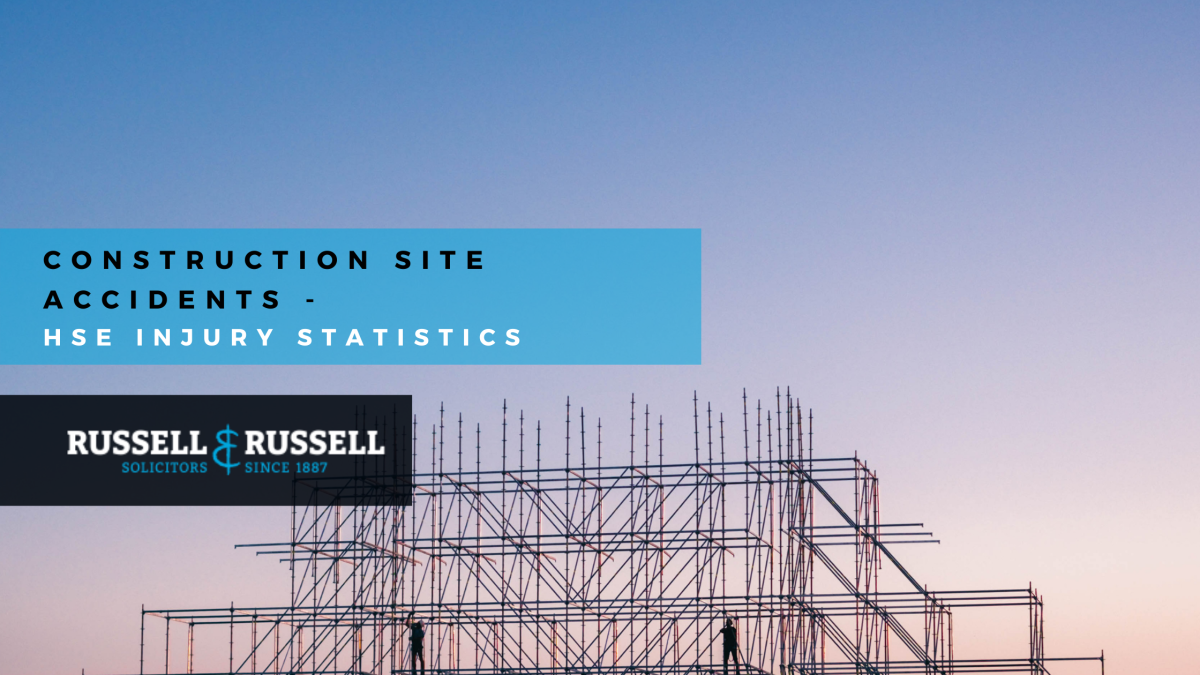23/04/2021

The UK construction industry, which accounts for about 7% of the national workforce continues to be one of the most dangerous sectors to work in. Statistics released by the Health and Safety Executive (HSE) towards the end of last year show that almost half of all fatal construction accidents (47%) were falls from a height, which sadly has seen a slight increase on the 5 year average, despite the UK’s extensive health and Safety legislation.
Other HSE figures show that there are around 61,000 non-fatal injuries to workers each year and around 26% of these non-fatal injuries were due to slips, trips and falls and there were around 81,000 construction workers suffering from work-related ill health (new or long-standing) in 2019/20. Over half of these (57%) were muscular-skeletal injuries, accounting for about 2% of the construction workforce. This is roughly double that seen across all other industries, where the rate of muscular-skeletal disorders is 1.1%. – you can read the full 2019/2020 report here
Typical construction industry accidents include
- Falls from heights, scaffolding or down holes and shafts
- Faulty or defective machinery
- Faulty of defective PPE
- Falling objects
- Electric shock
- Lifting heavy objects
The HSE sets the strategy, policy and legal framework for health and safety in Great Britain and the Health and Safety at Work etc Act 1974 is the primary piece of legislation covering occupational health and safety in Great Britain. It's sometimes referred to as HSWA, the HSW Act, the 1974 Act or HASAWA.
It sets out the general duties which:
- employers have towards employees and members of the public
- employees have to themselves and to each other
- certain self-employed have towards themselves and others
Employers who fail to have correct procedures and protections in place or comply with health and safety laws put employees at risk, and employers will be liable to pay compensation if a workplace injury was a result of their negligence.
Your Employers Obligations
Your employer is legally obliged to provide a safe working environment for you so that the possibility of an accident at work is kept to a minimum. They are also responsible for providing appropriate training for handling goods and machinery, as well as supplying suitable safety equipment. If these rules are not followed, they could be liable for negligence.
Construction Site Injury Compensation
Having an accident at work can have a significant impact on your life. Apart from having to deal with the pain of your injury, and any subsequent rehabilitation, not being able to work can lead to financial consequences for you and your family and loved ones. Thousands of people each year take time off to recover from an accident at work. If you’re one of them, we can advise if your employer has a case to answer.
You can be sure of expert legal advice from our specialist construction site accident lawyers, who will help you get compensation for your injuries and the losses you have suffered as a result of the accident. We offer a free, no obligation assessment of your case where we will advise you of your chances of success. Regardless of how you were injured, you could make a construction accident claim if your employer, contractor, or another contractor on site didn’t do everything they could to prevent the accident from happening. Call our specialist personal injury team today 0800 731 7555
Please note that this article is meant as general guidance and not intended as legal or professional advice. Updates to the law may have changed since this article was published.

